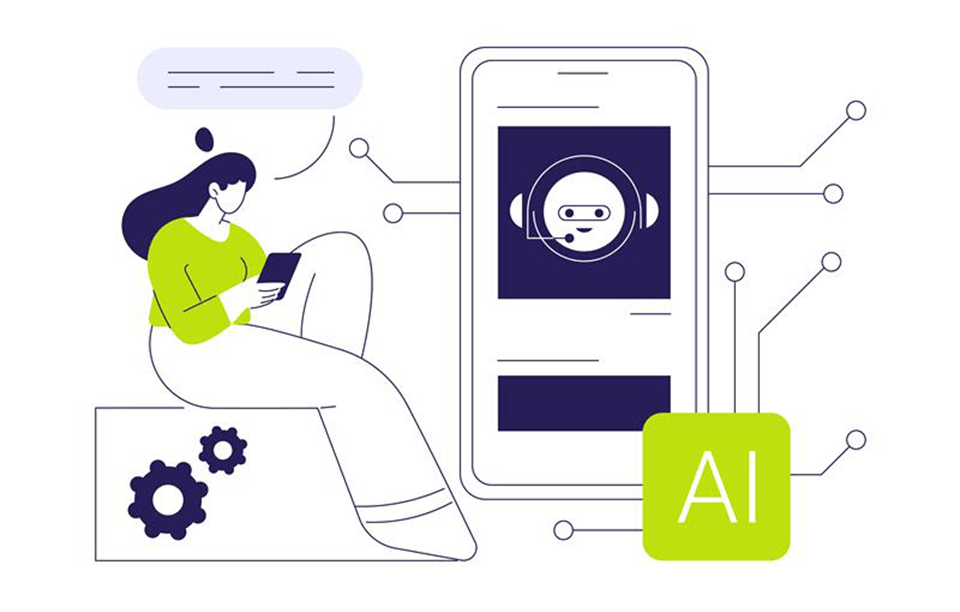The mobile app landscape is evolving at a rapid pace, and generative AI (GenAI) is at the forefront of this transformation. From content creation to personalized user experiences, GenAI is reshaping how businesses and developers think about app design, engagement, and functionality. However, while the opportunities are immense, the challenges are equally significant.
In this blog, we’ll explore how generative AI can be integrated into mobile apps, the key opportunities it unlocks, and the potential hurdles developers must overcome.
What is Generative AI?
Generative AI refers to a subset of artificial intelligence that can create new content—whether it’s text, images, code, audio, or even video—based on the data it has been trained on. Unlike traditional AI, which focuses on analysis and predictions, GenAI produces entirely new and contextually relevant outputs.
Opportunities of Integrating Generative AI into Mobile Apps
1. Hyper-Personalization
Generative AI allows mobile apps to deliver tailored content, recommendations, and experiences. For example, a fitness app can generate personalized workout routines, while an e-commerce app can create AI-driven product descriptions for individual users.
2. Content Creation at Scale
Apps can use GenAI to generate blogs, social media captions, or in-app messages on demand. This helps platforms like learning apps, media apps, or lifestyle apps keep their content fresh and engaging without requiring continuous manual input.
3. Conversational Interfaces & Chatbots
AI-powered chatbots have evolved into intelligent conversational assistants. With GenAI, they not only answer user queries but also engage in natural, human-like conversations, improving customer support and in-app engagement.
4. Enhanced Creativity Tools
Mobile apps for design, video editing, or music can leverage GenAI to help users generate artwork, compose melodies, or edit videos in seconds. This democratizes creativity, making professional-grade tools accessible to everyone.
5. Code Generation & Developer Assistance
For developer-focused apps, GenAI can accelerate coding by generating snippets, testing scripts, or providing debugging suggestions—directly within the app ecosystem.
Challenges of Integrating Generative AI into Mobile Apps
1. Data Privacy & Security
AI models often require large amounts of user data to function effectively. Ensuring that sensitive information is handled securely and complies with regulations like GDPR is a major concern.
2. Bias & Ethical Concerns
Generative AI models may unintentionally generate biased, offensive, or misleading content. This can impact brand reputation and user trust if not carefully managed.
3. High Computational Costs
Running advanced GenAI models can be resource-intensive, especially on mobile devices with limited processing power. Developers need to find the right balance between on-device processing and cloud integration.
4. Integration Complexity
Integrating GenAI into existing mobile app architectures requires specialized expertise and infrastructure. Developers need to ensure seamless integration without compromising app performance.
5. User Trust & Transparency
Users may hesitate to adopt AI-driven features unless they understand how the AI works and how their data is being used. Building transparency and offering user control is key to adoption.
Best Practices for Successful Integration
- Hybrid Processing: Use a mix of cloud-based AI for heavy processing and edge computing for quick responses.
- Human-in-the-Loop: Ensure AI outputs are reviewed or editable by users, especially in creative or sensitive use cases.
- Continuous Monitoring: Track AI outputs to detect biases, errors, or unintended results.
- Explainability: Provide clear disclosures about how the AI works and why it generates certain outputs.
- Scalable Infrastructure: Plan for high user demand with robust cloud and backend support.
The Road Ahead
Generative AI has the potential to redefine mobile app experiences, making them more intelligent, engaging, and personalized than ever before. However, realizing this potential requires developers and businesses to carefully balance innovation with responsibility. By embracing ethical practices, prioritizing user trust, and optimizing infrastructure, mobile apps can unlock the full power of generative AI while mitigating its risks.
In the coming years, we can expect generative AI to move from being a competitive differentiator to a core expectation across mobile applications. Those who start integrating it thoughtfully today will be better positioned to lead tomorrow.


